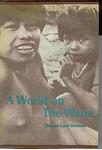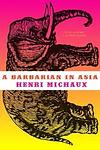The Greatest French "Asian History" Books of All Time
Click to learn how this list is calculated.
This list represents a comprehensive and trusted collection of the greatest books. Developed through a specialized algorithm, it brings together 300 'best of' book lists to form a definitive guide to the world's most acclaimed books. For those interested in how these books are chosen, additional details can be found on the rankings page.
Genres
Asian History is a category of books that focuses on the historical events, cultures, and societies of Asia. This category includes books that cover a wide range of topics, including the ancient civilizations of China, Japan, and India, the rise and fall of empires, the impact of colonialism, and the modernization of Asian countries. It also includes books that explore the social, political, and economic changes that have shaped the region over time. Overall, Asian History provides readers with a comprehensive understanding of the rich and diverse history of Asia.
Countries
Date Range
Reading Statistics
Click the button below to see how many of these books you've read!
Download
If you're interested in downloading this list as a CSV file for use in a spreadsheet application, you can easily do so by clicking the button below. Please note that to ensure a manageable file size and faster download, the CSV will include details for only the first 500 books.
Download-
1. A World On The Wane by Claude Lévi-Strauss
The book is a reflective account of an anthropologist's journey through the Amazon Basin, documenting the lives and customs of indigenous tribes at a time when their traditional ways were increasingly threatened by the encroachment of modern civilization. Through a series of vivid observations and analyses, the author explores the complex social structures, myths, and rituals of these societies, while also contemplating the impact of Western influence on their survival. The narrative serves as both a poignant chronicle of disappearing cultures and a critique of the forces of colonialism and globalization that contribute to the erosion of human diversity and heritage.
-
2. A Barbarian In Asia by Henri Michaux
This travelogue presents a series of vivid, often surreal observations and reflections on Eastern cultures through the eyes of a Western traveler, who traverses the Asian continent with a perspective that oscillates between fascination and alienation. The narrative is characterized by its poetic style and ethnocentric critique, offering a candid, at times controversial, account of the customs, people, and spiritual practices encountered. The work captures the interplay of the barbarian's internal reflections and the external exoticism of a world vastly different from his own, creating a complex and introspective journey through 1930s Asia.
-
3. From A Chinese City by Gontran de Poncins
In this travelogue, the author offers an intimate glimpse into the daily life and culture of a pre-World War II Chinese city, far removed from Western influence. Through vivid descriptions and personal anecdotes, the narrative captures the essence of the city's streets, its people, and their traditions, painting a rich tapestry of local customs, beliefs, and the social dynamics of the time. The author's journey not only explores the physical spaces of the city but also delves into the philosophical and spiritual undercurrents that define the heart of its civilization, providing a unique and timeless insight into a way of life that stands at the crossroads of change.
-
4. The Buddha And His Religion by J. Barthelemy Saint-Hilaire
"The Buddha and His Religion" offers a comprehensive exploration of the life and teachings of Siddhartha Gautama, known as the Buddha, and the subsequent development of Buddhism. The book delves into the historical and cultural contexts of ancient India that shaped and were shaped by Buddhist philosophy. It examines the core principles of Buddhism, including the Four Noble Truths and the Eightfold Path, and discusses the spread and adaptation of Buddhism in various regions. Additionally, the text analyzes the organizational structure of the Buddhist community, the role of monks and laity, and the evolution of Buddhist thought and practice over time.
Reading Statistics
Click the button below to see how many of these books you've read!
Download
If you're interested in downloading this list as a CSV file for use in a spreadsheet application, you can easily do so by clicking the button below. Please note that to ensure a manageable file size and faster download, the CSV will include details for only the first 500 books.
Download


